Superproducer Kevin Shirley: my 12 career-defining records
"I definitely much prefer to work with a band on the floor and have everyone playing at the same time."
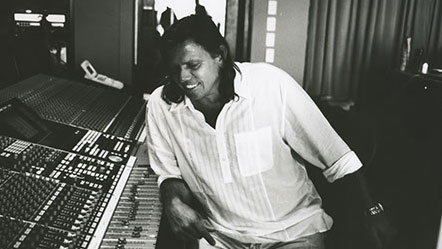
"I just love being in the studio with musicians"
For over three decades, Kevin ‘Caveman’ Shirley has engineered, produced and/or mixed some of the biggest names in rock’n’roll history.
Rush, Journey, Slayer, Deep Purple, The Black Crowes, Led Zeppelin, Aerosmith, Joe Bonamassa, Iron Maiden, Joe Satriani and Dream Theater are just a few of acts to have benefitted from Shirley’s high calibre skills in the studio.
Shirley kicked off his illustrious career working at various facilities in his native South Africa before relocating to Australia in the late-1980s. His killer job on helping craft multi-million selling debut album Frogstomp by teenage Aussie grungers Silverchair earned him plaudits across the globe and it wasn’t long before he was plying his trade in the US, developing his reputation as one of rock’s most in-demand and well-respected record producers.
Before Shirley digs into his personally-selected 12 career-defining records, we quiz him about his own unique personal approach to engineering and production.
“When I started, I was working at a studio that did a lot of advertising jingles and I did my first records there,” explains Kevin. “We had a few limitations so the way I started was building up tracks one instrument at a time, which is still the way a lot of people approach making records.
"But, now, I definitely much prefer to work with a band on the floor and have everyone playing at the same time so I can really incorporate the interactions that are happening between them. There’s a natural energy that happens in those spaces and I happen to be a really big fan of it, a lot more so than of sculpted and produced music.
I don’t sit down and go, ‘Give me 55 guitar solos and let me find the best one!’
"I just love being in the studio with musicians and I love guiding a band through a song and it’s still as big a passion as it ever was. Some people like things that way but then there are certainly others who like to hear music a lot more produced, even if it’s rock. I’m just not really that fond of that, to be honest.
"I’m adaptable but I think that people really do enjoy my approach if they enjoy the challenge of being able to give you a performance rather than the drudgery of having to work through things. I don’t sit down and go, ‘Give me 55 guitar solos and let me find the best one!’”
Aside from Joanne Shaw Taylor’s scorching new album Wild, what other recent and upcoming projects have been taking up Kevin Shirley’s time?
“I’ve been very involved in making concert videos recently but I always take them a little bit further than just a concert video,” he says. “With Joe [Bonamassa], we’ve been working on conceptualising this program of Keeping the Blues Alive, where we have him play songs that different blues artists have done in an effort to demonstrate the heritage and the legacy of these artists and how it’s applicable to rock music.
It was certainly difficult to leave some out that I’ve left out but it’s quite a comprehensive overview of all of the kinds of stuff I’ve done.
"We have one that [came out on September 23rd] called Live At The Greek Theatre, which was originally called A Tribute To The Three Kings - Freddie King, Albert King and B.B. King. Unfortunately, one of the protagonists decided to take umbrage with the fact that her father was one of those ‘Kings’. It was very difficult and so we had to remove all ‘Kings’ from the packaging and everything else, which was disappointing.
"On Muddy Wolf at Red Rocks, we covered Howlin’ Wolf and Muddy Waters and you get to meet them and hear a bit of their music and see how Joe’s adapted it. I think it’s part of the responsibility of musicians to keep young people engaged in the history and the legacy of music.”
It was never going to be the easiest of tasks narrowing down 12 career-defining records from the many hundreds that Shirley has been involved with over the years but the legendary producer gave us more than a helping hand with the selections.
“It was certainly difficult to leave some out that I’ve left out but, basically, it’s quite a comprehensive overview of all of the kinds of stuff I’ve done,” explains Shirley. “There’s no point in having two albums by the same artist. I think the diversity is really much more interesting.”
Don't Miss
Kevin Shirley's 7 tips for recording great blues guitar tone
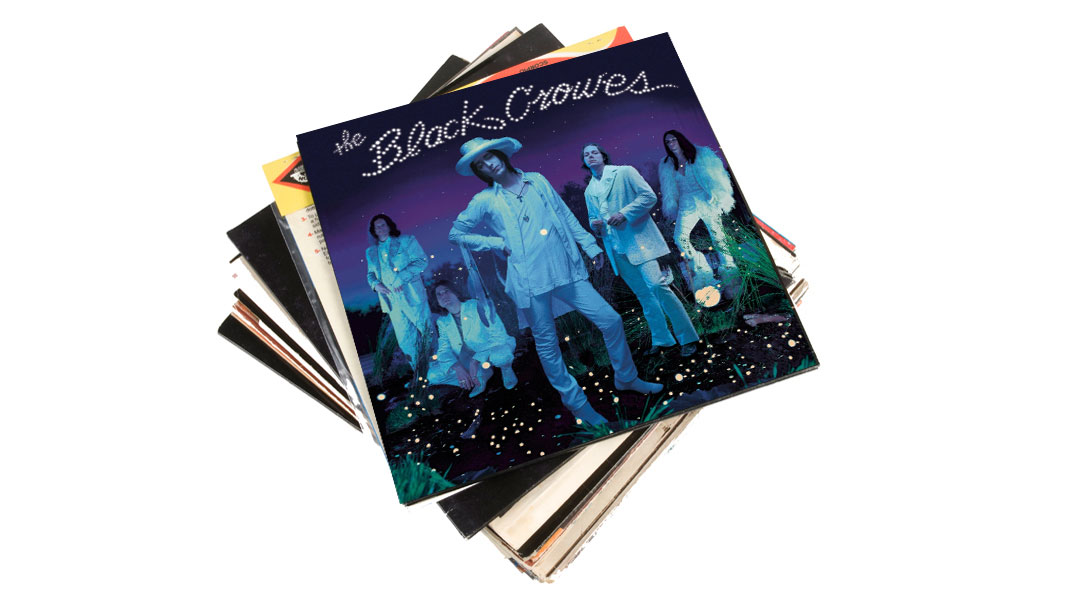
1. The Black Crowes - By Your Side (1999)
“It’s a funny record in that it gets a lot of different and divergent opinion from the hardcore fans but I happen to be a real fan of that album.
"I think that it’s got some great stuff on it and the guys in the band loved it and it was great fun to make. You know, the sound of the band at the time was very wayward and I really tried to focus them and to reel them in. They were having these long jams, which is kind of what The Chris Robinson Brotherhood band is doing now, playing out these long Grateful Dead-type jams.
The sound of the band at the time was very wayward.
"I felt that they could be much more effective in getting their music across to more people if they could be more focused and maybe even a little more hard-edged than they had been previously so that’s where I channeled my energies for that record. There are a lot of great memories for that one.
"We did the song HorseHead, which came out really well but, initially, they didn’t really have a big chorus for it and I remember I had some backing vocal singers coming in. Everyone had left. Chris [Robinson] was around but he went to go and have dinner with Rande Gerber and Cindy Crawford.
"So, these singers came in and we put all those backing vocals into that song and then they came back after dinner and heard it. Nobody was there from the band when we put those backing vocals on it but we all thought it came across pretty well.”
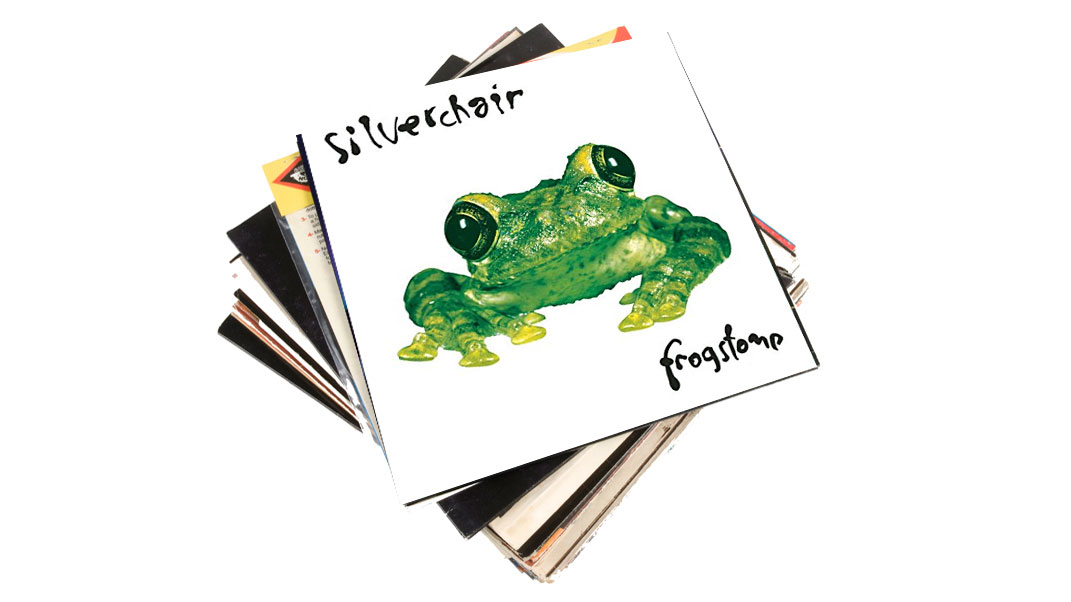
2. Silverchair - Frogstomp (1995)
“Silverchair was fascinating because they were a bunch of three 15 year old boys.
"I had heard them before and I was impressed with a demo tape of theirs that I’d heard but they had been working with a great producer, Nick Launay… but then Nick turned out to be busy and so I got involved. They were three kids that didn’t know how to make a record at all but Daniel [Johns – singer and guitarist] had such raw talent.
They were three kids that didn’t know how to make a record at all.
"He just had perfect pitch pretty much straight up. I think that they really wore the influences on their sleeves on that one. They were listening to Helmet and Pearl Jam and Nirvana and all those influences were coming out and they hadn’t really found their own voice yet.
"We were kind of lucky with that record because there was a hole in the market at the time… and a radio station in Atlanta, Georgia picked it up and started playing Tomorrow and I think we sold about five million copies by the end of it. I didn’t expect it to go so big.
"I knew though, for the ten days that it took to make, that I was very invested in it. I knew it was a good album but it was pretty difficult - to be honest - because I had these three kids running around discovering porn videos and playing cricket in the hallway while I was desperately trying to work!
"And Ben [Gillies] had only been playing drums for about a year. He was a kid so he didn’t really have a big groove so I had to really edit the tape and splice the tape for the drums. It was a lot of work, actually.”
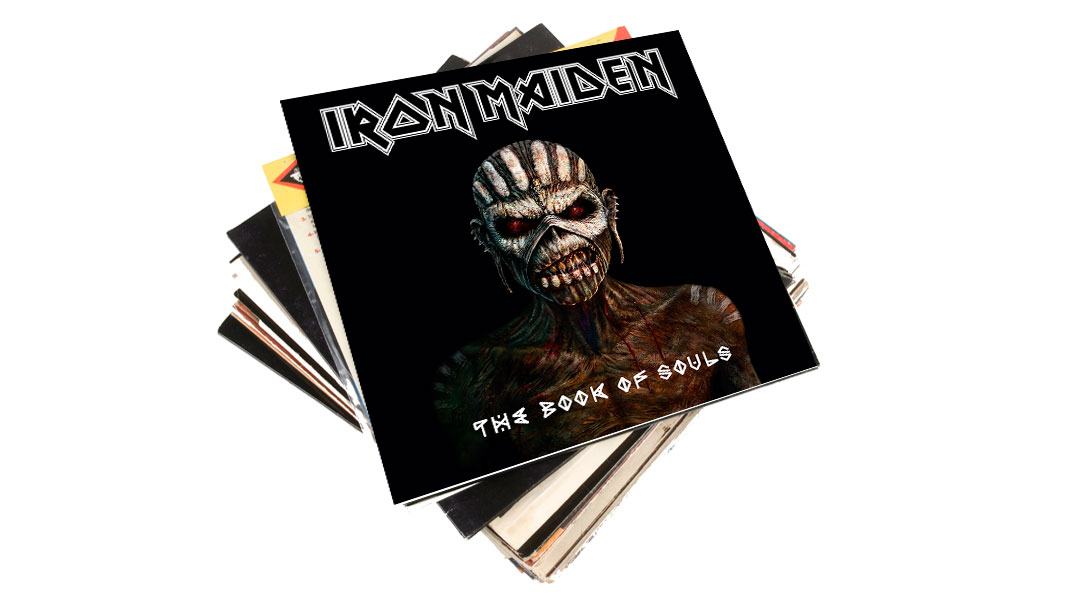
3. Iron Maiden - The Book of Souls (2015)
“The Book of Souls is the most fun record I’ve made with Iron Maiden… but we didn’t expect it was going to be fun.
"Steve Harris had called me just before we went into the studio and he said, ‘Look, we’re not ready for this. I’ve had some devastating events in my family and I’m not ready for it. I haven’t been writing and the band hasn’t been writing.’
"But it was just like a battleship or an aircraft carrier. It was going and we couldn’t turn it around. Money had been spent and contracts signed and we’d been holding the studio for about two years.
I just said, ‘Let’s just go to the studio, get on the floor and see what happens'.
"I just said, ‘Let’s just go to the studio, get on the floor and see what happens. We’ll go write songs, learn them and record them.’ We did it and we all had such a good time making the record. It was fantastic.
"It was also the record that I’ve been the most involved in with Maiden because Steve’s always had a very hands-on approach to everything that we’ve done.
"He’s always overseen everything but, with this one, everyone just came in and did their bits and then left me to make a record. It was thrilling, it was exciting and there was a lot of energy in the room.
"I remember we were cutting one thing and Bruce [Dickinson] was playing the piano in the room next door trying out this new idea for a song. The other guys were sort of ignoring him but it was captivating and I embraced it and we ended up having Empire of the Clouds as a result, which is a real work of art, I think.”
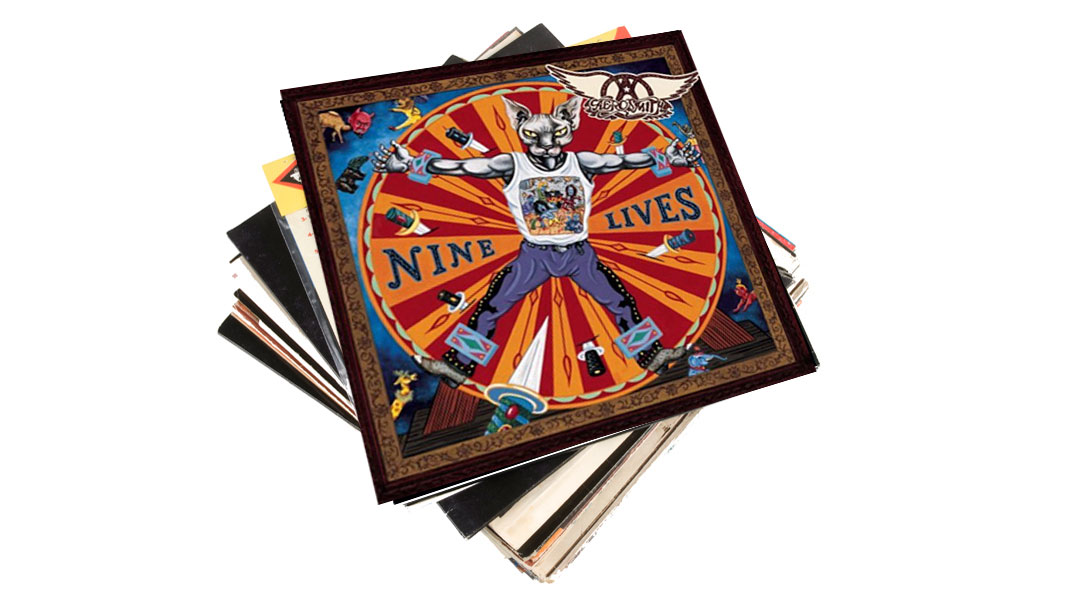
4. Aerosmith - Nine Lives (1997)
“Nine Lives was very challenging to make because Aerosmith had already made it with Glen Ballard, but they weren’t happy with it so they got me involved to try and inject some live energy into the record.
The band was at each other’s throats a little bit here and there…
"We were initially only going to replace some of the guitars but we ended up re-cutting everything from the ground up. It was a challenging record to make because the band was at each other’s throats a little bit here and there… but I love how it came out.
"I loved the freedom that I had to work with these great songs. I still love tracks like Hole in My Soul and Ain’t That a Bitch and The Farm. I think that album has got some great songs on it but it’s unfortunate that it seems to be under-appreciated.”
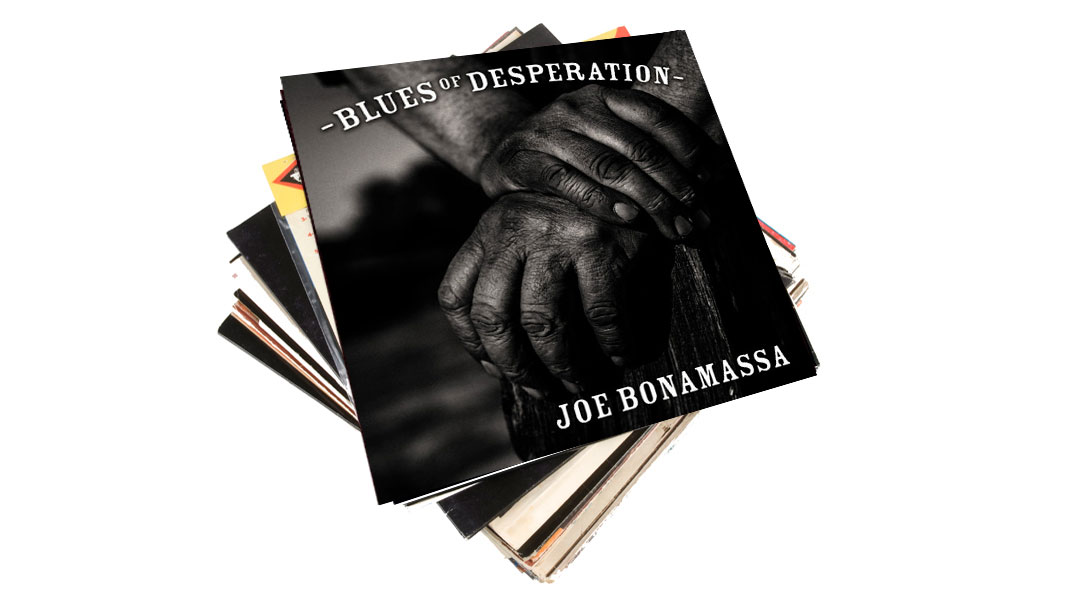
5. Joe Bonamassa - Blues of Desperation (2016)
“It’s one of my favourite Joe ones that we’ve done and it’s almost like a coming of age record for me. I feel like we actually finally got to put this blues artist into the same channels as all the top labels.
Independent artists are always operating within boundaries but we’re not looking for hit songs with Joe, we’re just looking to elevate someone’s who’s basically a live artist. He spent a little more time writing on that album and I liked where he went with it and I think we pushed the boundaries with the soloing.
I think we pushed the boundaries with the soloing.
"I think we also got such a terrific energy by adding another drummer into the mix because it made them uncomfortable. When you have a core band, they all feel pretty much secure in what they are doing and they do what they do very well but then - all of a sudden - you add another element which appears to be threatening.
"I said to Anton Fig, ‘You’re not going to play the groove on this - you’re going to play incidental drums on this! I’ve got another drummer [Greg Morrow] in to play the groove.’ And he was like, ‘Why?’ and I said, ‘Well, I just wanted to try something out’ so I know he felt challenged by that.
Joe was confronted with this attack on him and he was playing to sort of defend himself.
"There was a great mutual admiration going on but there was an element of people digging in a little harder. We had these two drummers going at it and Michael Rhodes playing bass and I had him put all the distortion on.
"Joe was confronted with this attack on him and he was playing to sort of defend himself. It was intriguing how much energy came out of that situation.”
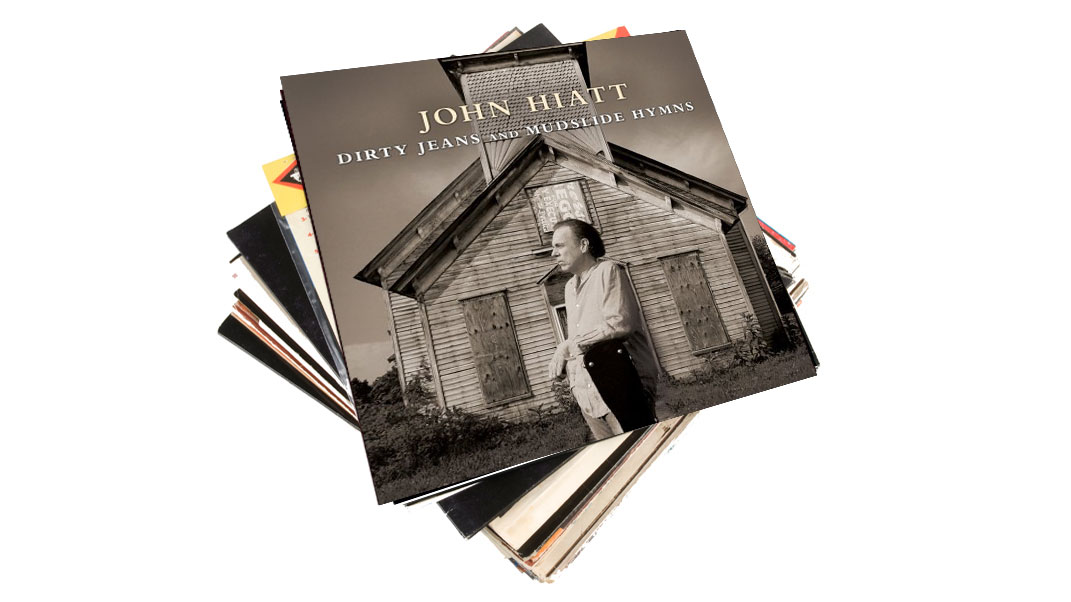
6. John Hiatt - Dirty Jeans and Mudslide Hymns (2011)
“John Hiatt’s one of my favourite writers. I just love the way he writes but I’ve always thought that his albums were under-representing him so I wanted to go in and give him an opportunity to turn his songs into big soundscapes.
"Ijust wanted to say, ‘We can do more with these songs!’ When we were in the studio, I’d say, ‘Don’t do anything for 64 bars and let me put some orchestration in here and create something because the lyrics might be suggesting other sounds.’
I loved putting the pictures to his words.
"There is one song where he sings about being in that state of falling asleep - not quite asleep yet but dreaming - and I had this very kind of almost ambient but real string sound and it leads you through to the next passage. For me, it was a wonderful opportunity to put some more pictures to his brilliant work.
"I loved the next album Mystic Pinball as well and songs like Wood Chipper, which is kind of a demented thick underlying story and you never quite know what it’s about. I just wanted to make his albums more visual somehow and I love the two records I made with him.
"It’s maybe not quite the representation that a lot of people expect from a singer-songwriter, who’s probably got more coffee shop appeal than anything else but I loved putting the pictures to his words.”
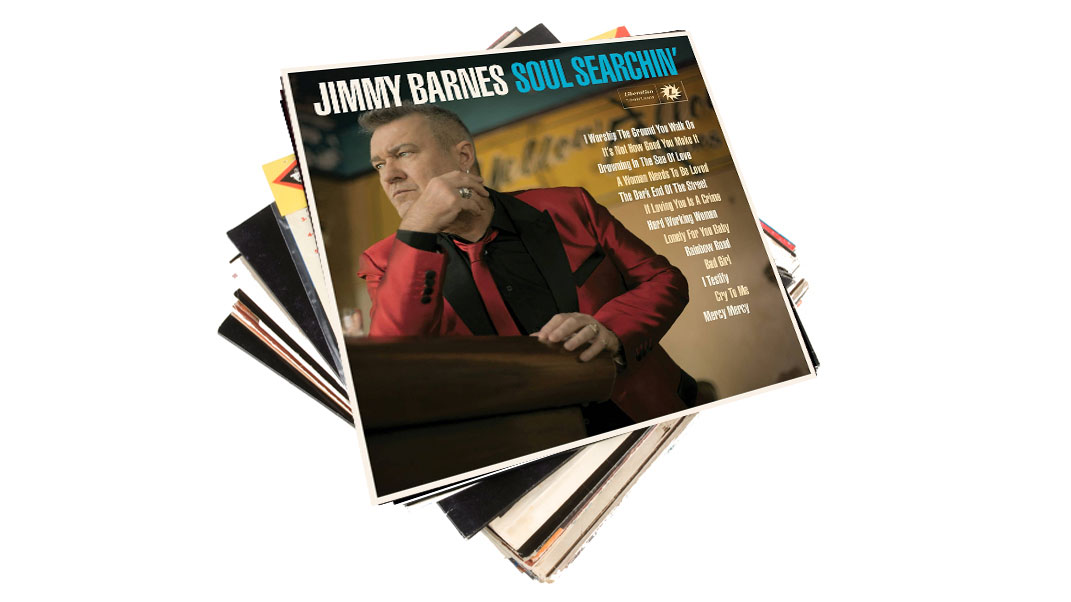
7. Jimmy Barnes - Soul Searchin' (2016)
“It was such a joy to make this record. For starters, I love Jimmy.
"He is the most hard-working performer I’ve ever seen and, in the studio, he gives so much so it’s a real joy. He came to me with this concept of making a solo record with songs that have never really made it by artists that have never really come out of the shadows.
We took a drive down to Muscle Shoals…
"So we went looking for really old soul songs that have been around since the early-‘60s but maybe have never seen the light of day. We went into the studio with a real attitude of trying to make a soul record in this day and age in a studio in Nashville with a drummer from Memphis and a bass player from the South.
"We took a drive down to Muscle Shoals… and I did my research and ingrained myself in old soul music just to get my head around it and understand it because it’s not really a genre I’ve ever done anything much with before other than just listen to it.
"For the [deluxe edition], we even covered Mustang Sally and another Wilson Pickett song that everyone knows. It was actually terrific just digging into these songs, listening to the nuances that were in these old recordings and then trying to apply the same headspace into making a record in the modern day.
"I just loved making the record and it went to number one in Australia, which was gratifying. It was just a project that was kind of curing in a sense and you’ve got to love that…”
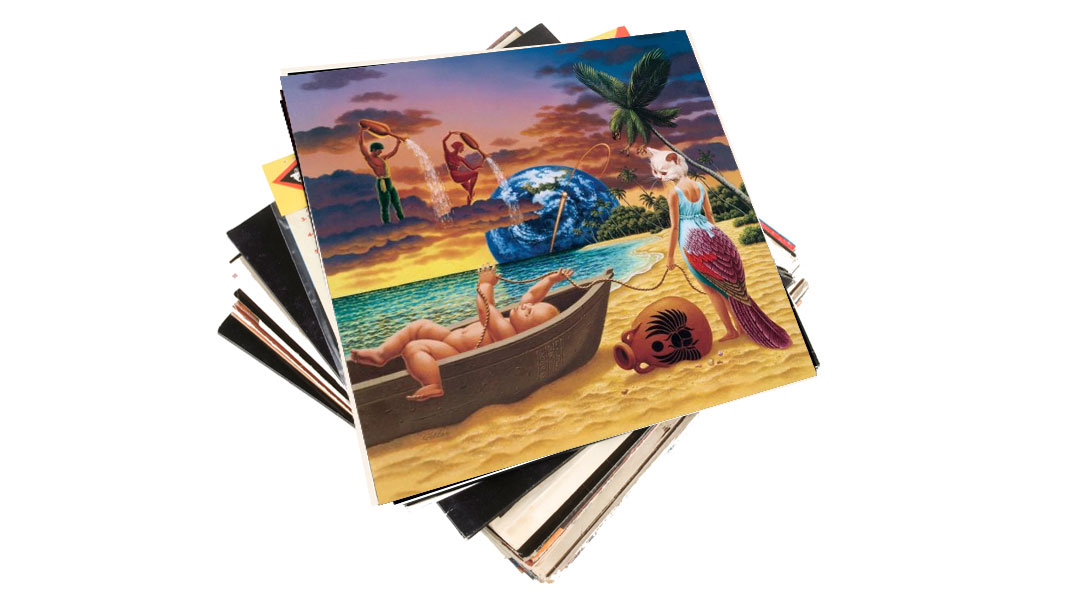
8. Journey - Trial by Fire (1996)
“It’s interesting because I came to produce a Journey record when I was not a Journey fan in that I just didn’t know Journey at all.
"I knew Neal Schon and Jonathan Cain worked with Jimmy Barnes, strangely enough, on the Freight Train Heart [1987] album. I think Jon produced it and they both played on it and I had immense respect for them because I loved the work that they did on that.
"When we had a meeting and they asked me to produce them, it was a real challenge. It was like, ‘What do you do with this iconic American classic rock band?’ but it was great! We rehearsed a lot, we did a lot of work and it was really fun.
When we had a meeting and they asked me to produce them, it was a real challenge.
"I went back and listened to all the old records and found these things that I thought were great but that they’d sort of given up along the way and we re-injected those into the new songs that we were doing. Working with those high calibre musicians on the floor with Steve Perry singing was an absolute dream.
"And that was the big launching pad for me in the States because after Journey, I went on to do Aerosmith and the Crowes and a lot of other bands that I really like.”
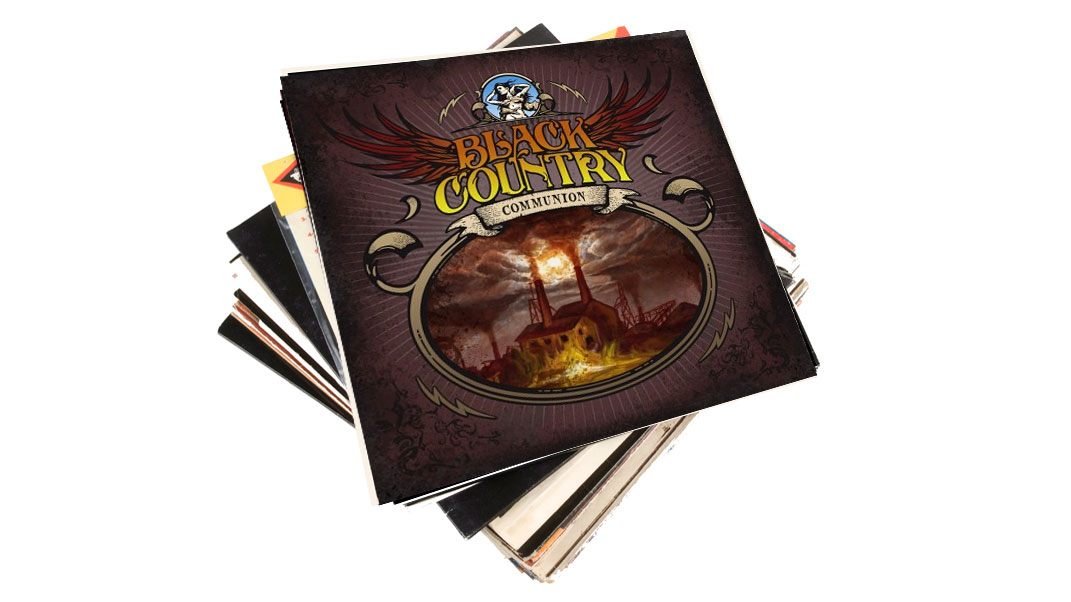
9. Black Country Communion - Black Country Communion (2010)
“That was sort of an early morning dream kind of job! I went down to see a Guitar Center concert and Glenn Hughes was there and Joe [Bonamassa] got up and played a song with him and there was something so electric about the way the two of them were interacting… so then I had this idea!
"I went backstage and saw them and then I called Jason [Bonham], who I’d worked with before, and then I called Derek Sherinian, who I’d worked with before with Dream Theater. I wasn’t thinking that we were going to reinvent a genre but I was hoping that we could bring one back.
I still love the sound of these old Free records, I still love the sound of Deep Purple records and I still love the sound of Bad Company.
"I still love the sound of these old Free records, I still love the sound of Deep Purple records and I still love the sound of Bad Company and those sort of things. There was a real simplicity to them. We weren’t looking to be terribly hip or anything. I just thought it would be real fun.
"So everyone came down to the studio and we really just recorded bits and pieces and I edited it all together on my laptop while I was doing another Iron Maiden record. No one knew if there was an album there or if there were even songs there.
"I love the way it came out and it had good reviews. Then we went in to do the second one but I think we strayed from the initial concept. We’re actually going back into the studio in January 2017. I’m going to really work at getting that band’s original mandate back.
"I love that old classic rock stuff and I think Rival Sons and those sort of bands that have come along have taken a leaf from our play book so we’ll take some of it back, I think.”
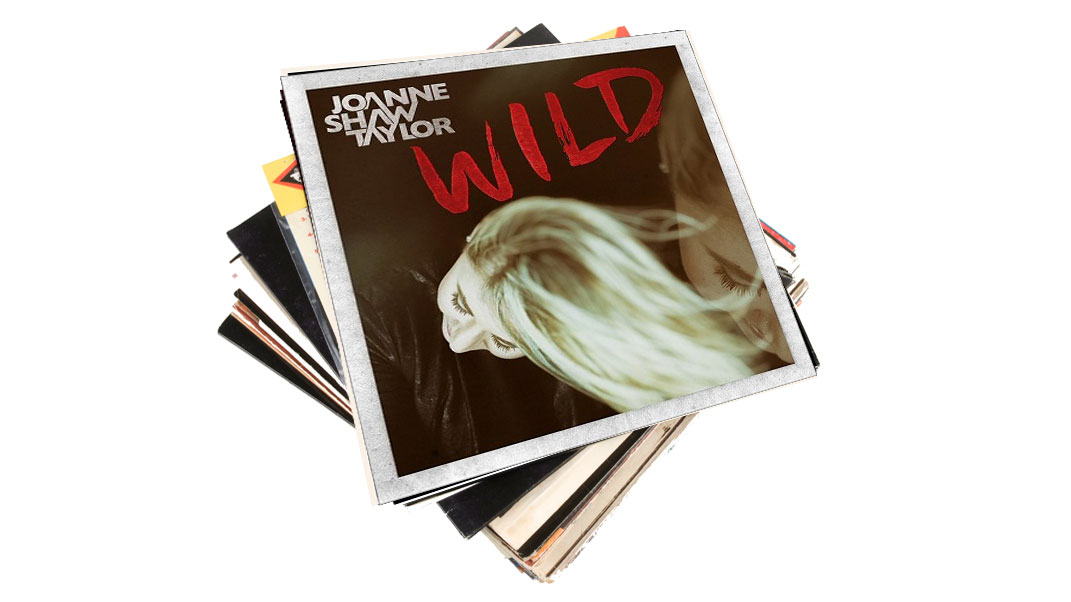
10. Joanna Shaw Taylor - Wild (2016)
“I’ve known Joanne for a while and she came to me and said, ‘Would you make a record with me, even though I don’t have much budget?’ We had a frank conversation about what she wanted out of it and I’d said I’d do it.
"I thought it could maybe elevate things for her a little bit. I absolutely love the record. I think she is just a brilliant performer and I think she’s sung so well on this. I think she has done what she’s always done but there’s some new uncharted territory for her.
I think she is just a brilliant performer.
"She covered an old song Wild Is The Wind and she does it brilliantly. It’s a real challenge for a singer to sing a song like that. She’s written with a few people on this record so there’s different styles here and there and it represents a growth for her, I think.
"She’s also releasing it herself so she’s a true independent. This really is one of my favourite records. I don’t often finish up a record and then find myself listening to it because I enjoy it but this is one that I still really enjoy.”
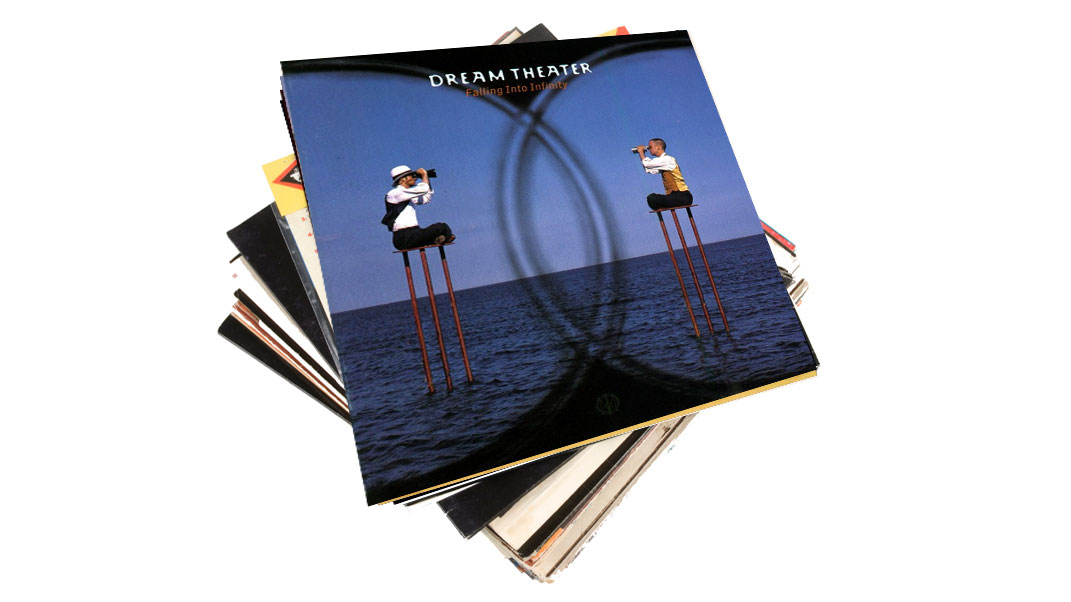
11. Dream Theater - Falling into Infinity (1997)
“I only produced one record with Dream Theater but I ended up mixing a lot more of them. It wasn’t the most fun record in the world to make because the record company was dying for these guys to have a pop hit and they were not really interested in having a pop hit… but we were trying a lot of things.
It was a really challenging record to produce.
"Mike Portnoy and John Petrucci have got a certain way of working and we worked well together. It was a really challenging record to produce.
"It’s probably not the best Dream Theater record in the world. I think some of the ones that I’ve mixed are better records but I wanted to put it in there because it was quite a departure for me to do a really progressive record like that.”
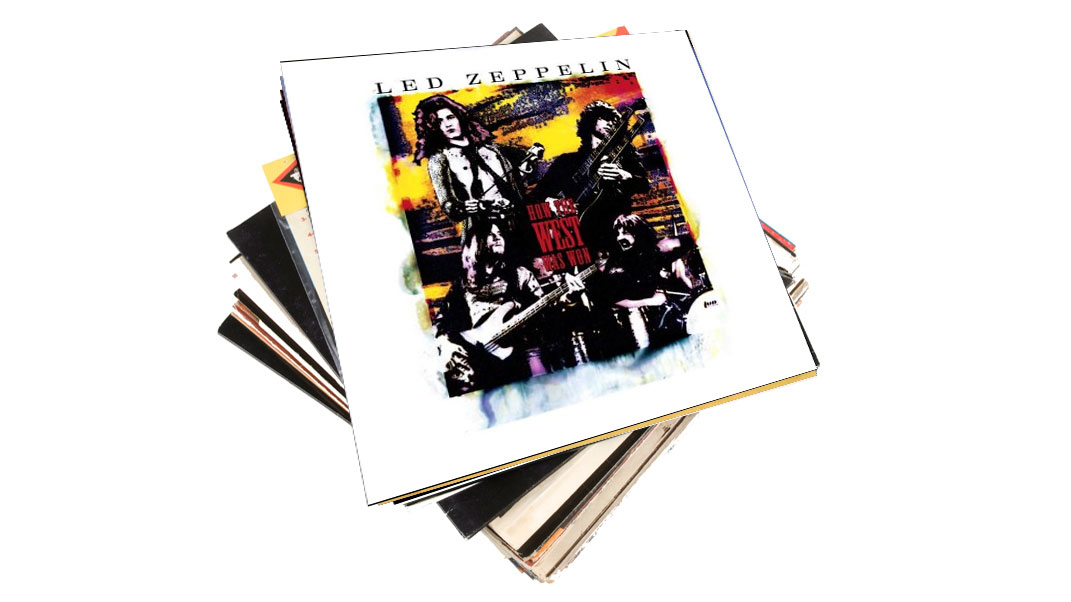
12. Led Zeppelin - How the West Was Won (2003)
“Of course, Jimmy Page produces Led Zeppelin so I didn’t produce it but I mixed it and I can tell you that I did as much work on it as I do when I’m producing records.
I cheated a little bit here and there...
"I found myself in a room full of tapes and we had to make a project out of it and it was very complicated. What everyone thinks might have been great, seamless performances were actually very challenging to work on and mix and get right.
"Some performances were inconsistent and needed shaping and moulding to make them come out magnificently. I cheated a little bit here and there on some stuff but my rationale was that anybody who wanted to see the real thing could see it because the performances were already available on video.
"At the end of the day, it was an entertainment package and not a documentary so we repaired things in the studio.”
Don't Miss
Kevin Shirley's 7 tips for recording great blues guitar tone